GENERALS OF NAPOLEON (16) - Macdonald- “The Gentleman”
Not a name you expect to find in Napoleon's staff, but a man you could count on.
[Macdonald in 1792. Photo credit.]
Jacques-Etienne-Joseph Alexandre MACDONALD is, as his name might reveal, of Scottish origin. His father fought gallantly along Bonnie Prince Charlie during his attempt to regain the English throne, before to emigrate in France. His son, the future French marshall, was born in 1763 in Sedan, and spent his teenage years in Douai’s military school.
[The island of South Uist, from which Macdonald's father originates. Photo credit.]
MacDonald first serves in Dillon’s regiment, which was a brigade of Irish volunteers who had fought for the French kingdom since 1690. When the Revolution breaks out, the Irish regiment remains loyal to the King and desert en masse. However, Macdonald, in love with the daughter of a devoted revolutionary, remains in France.
Neither his origin nor his class seems to be a problem for the new republic, especially when, as chief-of-staff of the infamous General Dumouriez, he refuses to betray when this one flees to the Austrians ranks. As a reward, Macdonald is named general.
He then passes under the orders of the General Pichegru, who leads the invasion of Holland, and takes part in one of the most bizarre and unic battle of the age. In January 1795, after taking Amsterdam, Pichegru learns that the Dutch fleet is prisoner of the ice on the river Helder. To prevent the fleet to find safety in England, Pichegru orders its cavalry to attack and Macdonald is at the vanguard of the cavalry which crosses the frozen takes and jump onboard the surprised fleet. 14 ships with 850 cannons are captured wholesale by a single cavalry charge.
[Capture of the Dutch fleet. Image credit.]
The northern front secured, his career follows the tide of the Revolutionary wars: first west on the Rhine, and then south in Italy. When the treaty of Campo Formio is signed (May 1797), Macdonald becomes governor of Rome. In 1798, with Bonaparte struggling in Egypt, the Bourbon king of the Kingdom of Naples tried to oust the French from the Italian peninsula. His army, led by the Austrian general Mack, first manages to retake Rome, but the French army led by Championnet and MacDonald suddenly counter-attacked and routed the Bourbon army in such a way that the panic led the Bourbon king to flee to Sicily.
In the ensuing mayhem in Naples, a short-lived Republic is proclaimed. However, the Austro-Russian threat in the north of the peninsula impedes the French army to properly defend and consolidate their success. When Championnet is recalled in France for graft, Macdonald is sole in charge. However, he is too slow and his 30.000 must face Souvorov’s 50.000 soldiers at the battle of La Trebbia in June 1799. Beaten, he still manages to make his junction with Moreau near Genoa.
Back in France, he becomes governor of the troops of Versailles, a key post during the coup of 18 Brumaire. He could have challenged Bonaparte but doesn’t move while the Directoire is disbanded. However, his behaviour is still suspect enough for the new First Consul, who decides to keep him at a distance, by nominating him ambassador to Denmark. However, when he is back in 1803, his friendship and loyalty to the General Moreau, the only opposant and challenger of the future Emperor, wins him a semi-exile in Bourges, as a military governor.
It’s only in 1809 that he is back in action: France is against at war with Austria. While Napoleon is leading the charge in Germany, he is worried by the inexperience of the Prince Eugene in Italy. Macdonald is recalled and sent to help. Thanks to him, the Franco-Italian army obtains the surrender of the town of Laybach (the modern Ljubljana) and defeats the Austrians at Raab in June 1799, and then make its junction with Napoleon in Vienna. One month later, comes the battle of Wagram, where Macdonald launches his 8.000 men against the center of the Austrian army, managing to turn the tide of the 40-hours-long battle. This feat owes him there and then the title of Marshall and the trust of the Emperor.
[Image credit.]
[Napoleon giving to Macdonald his Marshall's baton on the battlefield of Wagram. Credit.]
Now Duke of Tarento, he is firmly back in the highest ranks of the Grande Armée, and, as such, is sent in Spain in 1810. But he is not the kind of soldier cut for the guerilla warfare of the Spanish peninsula, and never manages to find the right balance between repression and conciliation, contrary to his colleague Suchet in Aragon. In October 1811, he is back in France, worn out by the gruelling war he just witnessed.
During the campaign of Russia, he is at the head of a regiment composed of Polish and Prussian troops, who defect as soon as the retreat is confirmed. But in the German campaign in 1813, he manages to win an important streak of victories in April and May, at Merseburg, Lutzen, Bautzen, and Bischofswerda, until to be stopped in his track at Katzbach in August. At the battle of Leipzig, he has to swim across the river Elster to avoid capture.
When the fall of Paris is consumed, in April 1814, Napoleon sends Macdonald, Ney and Caulaincourt to negotiate with the Allies. However, the best they can do is to relay a demand of abdication.
Made peer of France by the Bourbons, he manages to strike a diplomatic compromise during the Hundred Days: he accompanies Louis XVIII until the frontier before to come back to Paris, and refuses any commandment but re-joins the army as a simple grenadier in the National Guard.
After Waterloo, he stays away from politics and in 1825, he would eventually make a journey to Scotland and visit the place of birth of his family, from which we know thanks to his travel diary.
[Coat of arms of Macdonald. Note the scorpion, which was added when he became duke of Tarento.]
In Saint-Helena, Napoleon would later say of him: “Macdonald was a brave and loyal warrior. It’s only in the last circumstances that I was able to appreciate all the nobility of his character. His friendship with Moreau gave me doubts and prejudices against him; but I was wrong, and I regret not having known him better.”
Sources:
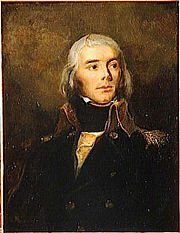
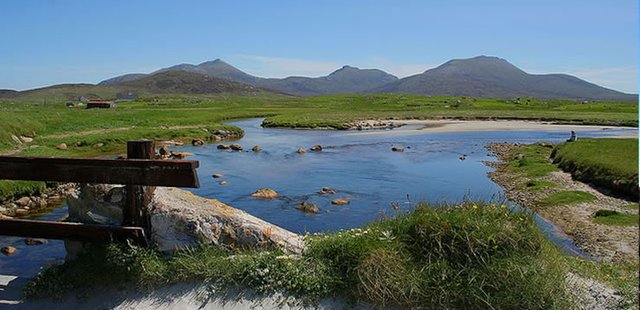
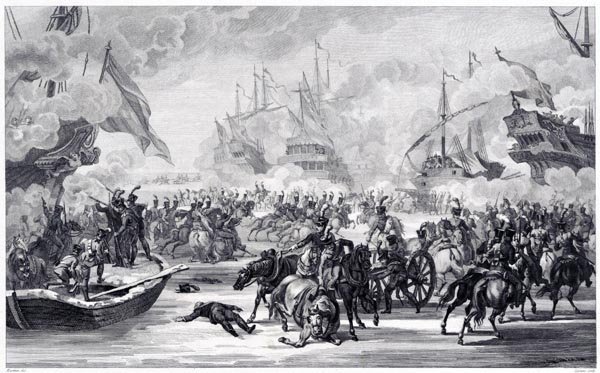
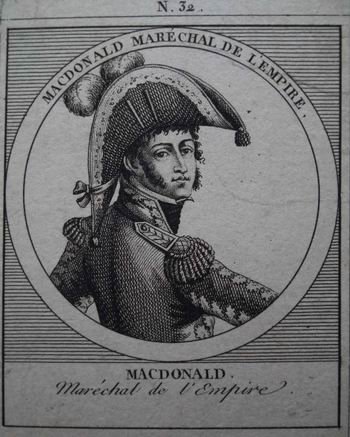
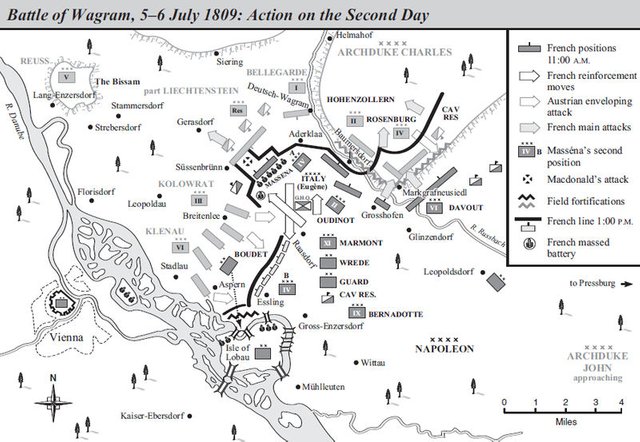
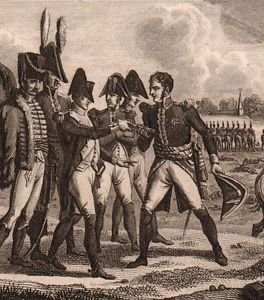
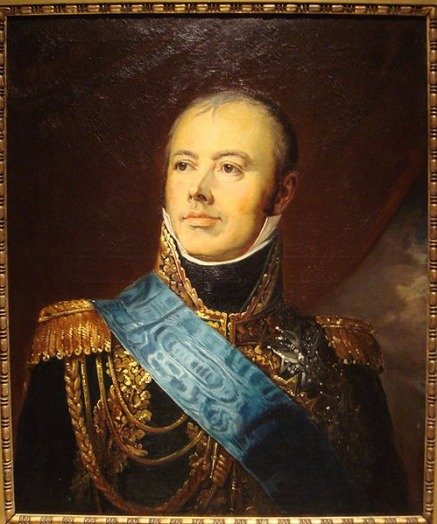
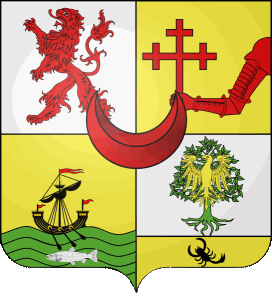
This post has been ranked within the top 80 most undervalued posts in the first half of Nov 19. We estimate that this post is undervalued by $2.78 as compared to a scenario in which every voter had an equal say.
See the full rankings and details in The Daily Tribune: Nov 19 - Part I. You can also read about some of our methodology, data analysis and technical details in our initial post.
If you are the author and would prefer not to receive these comments, simply reply "Stop" to this comment.